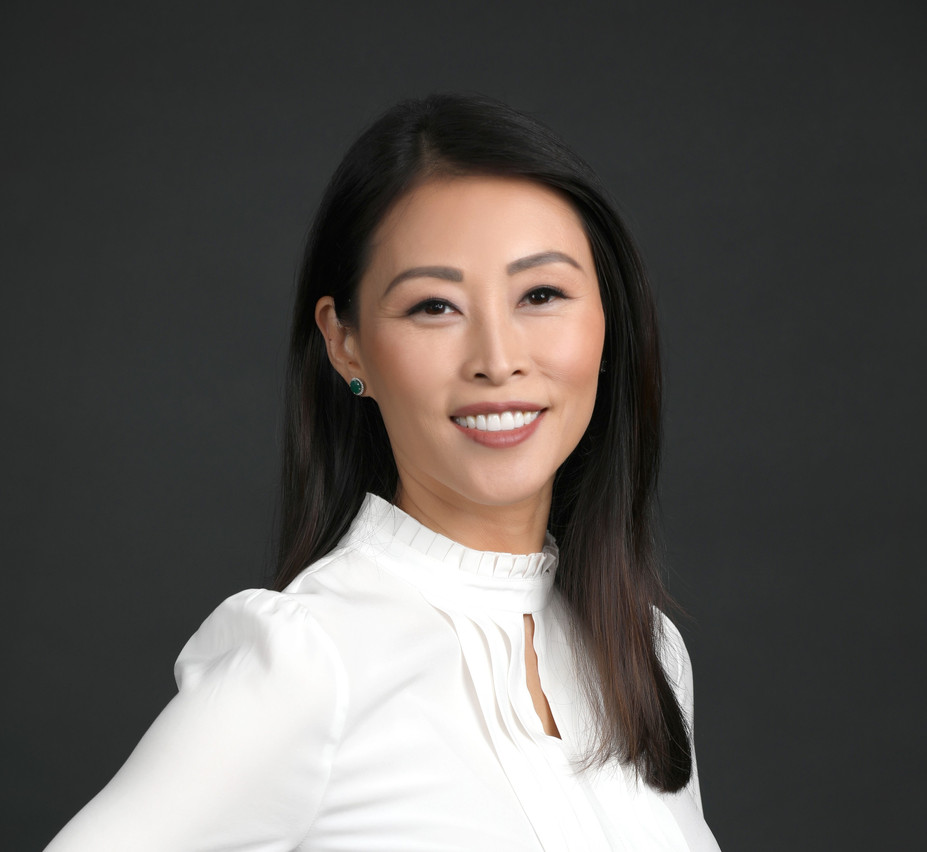The pair, who have both founded their own firms targeting the world of private equity investment in Luxembourg and the U.S, respectively, still rarely come across another women at their level.
“There are very few women and women of colour in the private equity buyout space, even in the US,” said Korean American Yoon, who founded Kinzie Capital Partners, a lower mid-market buyout firm focused on companies of sub-$50m EBITDA, in 2017.
Mekouar, of French Moroccan descent and founder of Luxembourg-based Calista Direct Investors, specialist investors and advisors in the private markets, agrees. “To come across a female is very rare, but you need diversity to be successful in the long term.”
They are backed up by hard figures. The International Finance Corporation found in 2019 that venture capital funds with gender-balanced senior teams generated investment returns that were between 10-20% higher than those with a majority of male or female leaders.
Moreover, in the private markets specifically, research has found that improved gender diversity has improved venture capital deals and fund performance, according to a 2021 by international consultancy Ernst & Young.
Yet a recent survey from asset manager PineBridge Investments found that more than a third of firms have not yet taken formal action to support equity and advancement of women and other employees from traditionally underrepresented groups.
Why? “Diversity, equity and inclusion, like environmental and social governance must be measurable, and those measurements must correlate with increased value creation,” explained Yoon, who recently took a year to put ESG policy together with measurement at Kinzie.

Suzanne Yoon, who founded Kinzie Capital Partners, a US-based buyout firm focusing on companies of sub-$50 million EBITDA Kinzie
The investment case for diversity
In a consumer-driven market, diversity is essential, said Yoon. “The US is a consumer-driven economy, and these consumers look different to your classic private equity profile. Around 80% of purchasing decisions are taken by women,” she said. “You have to represent the customer in the boardroom.”
Bringing different people from different backgrounds into the executive team at Kinzie has seen a huge increase in productivity, she explained.
According to the IFC study, diverse leadership teams are less likely to exercise group think and carry conscious and unconscious biases in decision-making processes. They also expand deal sourcing through broader entrepreneurial networks.
It would appear that some CEOs and founders are increasingly seeking investors that share their values. For example, in October 2021, private equity firm Blackstone took a majority share in the women’s shapewear brand Spanx, whose female founder worked with all-female deal and legal teams. In this case, Blackstone pledged to appoint an all-women board.
“We do see cases like [Blackstone], said Yoon. “[Private equity firm] KKR announces similar appointments. My question is, why is this even a topic?”
Private equity’s own problems
Progress isn’t moving fast as it could, and part of this is down to private equity itself. Private equity culture is distinct, agree both Mekouar and Yoon. It commonly shares a return-driven, consensus-building mentality that can be hostile to different viewpoints and opinions. Small-size firms means the career path can be opaque, and an informal culture of apprenticeship means that those that do not share common interests outside work can miss out on valuable opportunities to connect and be mentored.
According to Ernst & Young, one study that looked at data from 1995 to 2000 found that the attrition rate of women in private markets was nearly double that of men. 64% of the women identified in 1995 were no longer in the industry in 2000, versus 33% of the men.
In a more recent survey in 2020, the Australian Investment Council found that the highest attrition rates were among junior women.
Yoon recognises this. “I didn’t want anyone to know I was female when I was coming up the ranks.”
Conversely, many private equity firms believe they are a meritocracy. But by whose standards? “PE is so competitive, the best of the best,” said Yoon. “But people need different things in order to be successful.”
Mekouar recalls an interesting question from a candidate interviewed at her firm, Calista Direct Investors. “They asked how important empathy is within a team.”
Yoon finds this interesting. “It’s an interesting question, but it would have had us marked off the candidate list in our day! With the new generations, Millennials, Gen Z, we now need to make sure our leaders have a high level of emotional IQ.”
Few women in portfolio companies either
But lack of diversity persists right down the private equity chain to the portfolio companies. Compared with publicly traded companies, PE-backed firms have fewer programs, initiatives, and activities in place to promote DEI, according an by international consultancy BCG Partners.
Employees surveyed by BCG pointed to gaps in gender, race or ethnicity, and LGBTQ programming in areas such as mental health and wellness, flexible working, anti-discrimination initiatives, paid maternity leave, and clear criteria for performance reviews.
One of the problems is that a private equity-backed company is likely smaller than a publicly traded company. Another is that companies acquired by leveraged buyout will be striving for ambitious growth targets imposed by their private equity sponsor, leaving no room for tackling their diversity issues.
This, however, as Yoon puts it, is “insane.” She notes that in analyses such as that of BCG, there are almost twice as many PE-owned firms as publicly listed companies in the US, which means these firms can have an even greater impact externally.
Private equity firms are also in a unique position to encourage diversity in their portfolio companies. A recent initiative is private equity house Carlyle’s credit facility, which provides a financial incentive for companies in its portfolio to have diverse leadership.
“It’s not just fluff,” said Mekouar. “No endowment or pension fund will take smaller returns. Gender balance delivers better internal rates of return.”
Still, according to the IFC, only 7% of private equity and venture capital is invested in female-led businesses. The median female-led business has received only 65% of the funding received by the median male-led business, the IFC report says.
Concerningly, female-led businesses receive more funding in early stages of investment, such as accelerator or incubator, than in later stages, explained, according to the IFC report, by the greater frequency with which female leaders receiving initial rounds of funding appear to be replaced by male leaders in subsequent rounds.
Diversity is about more than gender balance
However, gender diversity is only part of the story. Both Mekouar and Yoon underscore the importance of diversity in other areas. This includes race, but also education levels, life experience and LGBTQ programming. Neuro-diversity, for example, members of the board with autism, is another hot topic. As Mekouar puts it, “viewpoints from all different places.”
In Calista Direct Investors, five nationalities and ten languages are represented. Does Luxembourg, with its wealth of expatriates from all over Europe, help the DEI cause?
“I think DEI is positively run here,” Mekouar says. “There’s a lot of goodwill in Luxembourg. However it’s still rare to come across another female.”
The crucial thing, always, argues Yoon, is to frame diversity as a value-creation strategy as the consumer base is diverse.
However, both women are at pains to iterate that they never volunteered to be mouthpieces for gender diversity in private equity.
“It’s a level of responsibility that I wasn’t thinking about when I started in this sector,” said Yoon.
Mekouar agrees. “I never wanted to be in the limelight but it happened when I moved to Luxembourg.”
Despite first instincts to run from the dialogue, they know they shoulder a great responsibility. “I know it’s still a problem when people tell me they’ve never seen a woman at the helm,” says Yoon. Or, more succinctly, as Mekouar puts it: “When will this discussion become redundant?”
